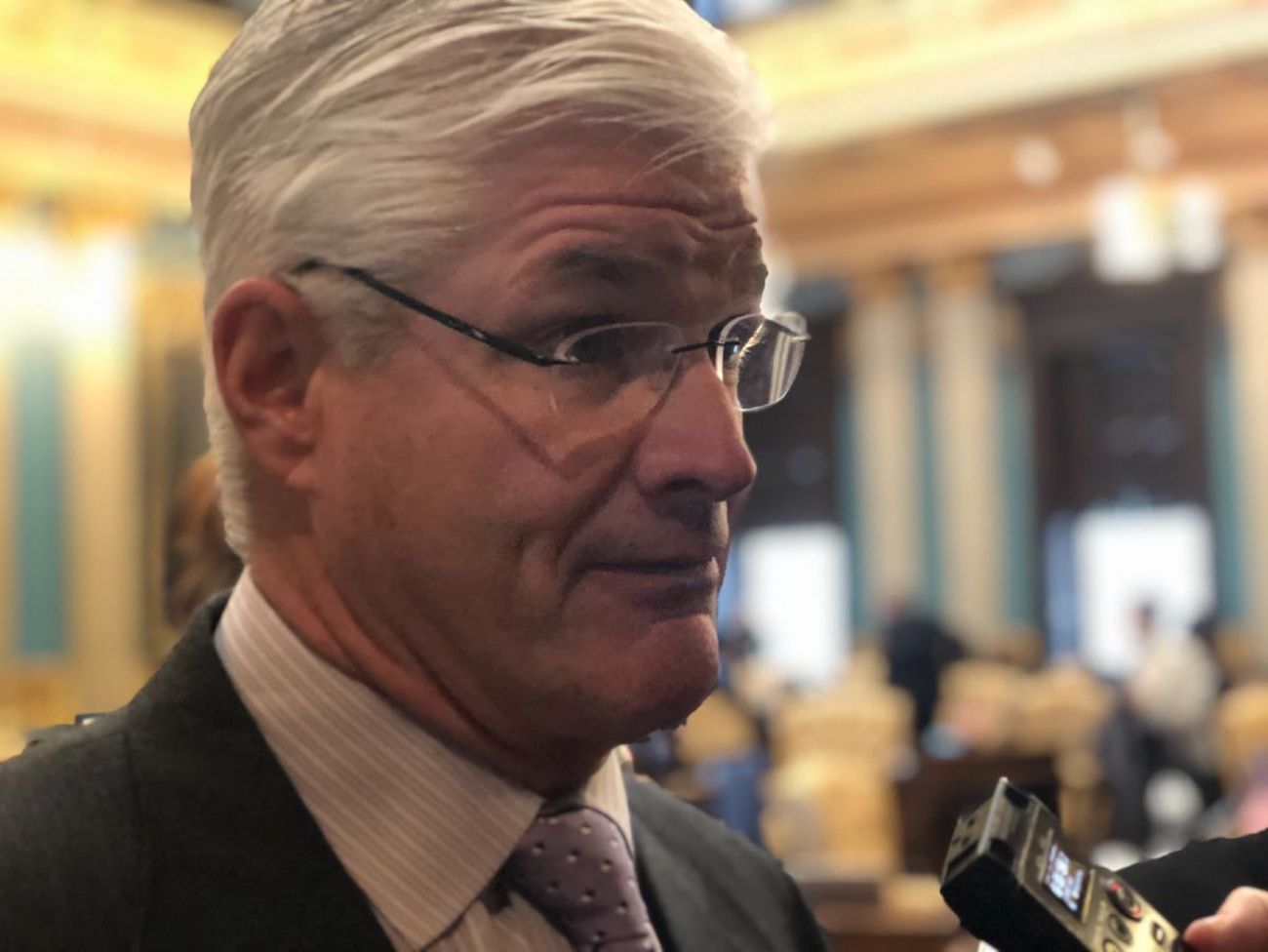Michigan, we have a budget deal. (Give or take $400 million)

LANSING – It’s done. For now.
After weeks of stalled negotiations, fallouts and name-calling, Gov. Gretchen Whitmer and legislative leaders agreed on a plan to spend more than half of the nearly $1 billion that Whitmer vetoed from the budget and restrict her power to move money within state departments.
The House and Senate nearly unanimously passed supplemental spending bills Tuesday that include language allowing the Legislature to reverse transfers made using the State Administrative Board — a rare procedure the governor used in early October to shift $625 million within state departments.
The language would be binding but only apply to this budget, although a top aide to Senate Majority Leader Mike Shirkey, R-Clarklake, said it’s likely to be included in coming years’ budgets.
Previous stories on the budget:
- Michigan Gov. Whitmer: ‘Bat-sh*t crazy’ jab doesn’t help resolve budget
- No deal: Senate GOP rejects possible budget compromise
- Locals to Lansing: Get a budget deal, because cuts are getting real
- Michigan Gov. Whitmer to GOP: I’ll make a budget deal, but won’t cede powers
- Republicans jockeying to override Gov. Whitmer’s budget vetoes
- Michigan has $1B left over from budget. What happens to all that money?
“I think [the administrative board powers] created a serious problem of being out of balance between the executive office and the Legislature in terms of negotiating and establishing a budget,” Shirkey said Tuesday.
“These changes reinstate that balance … when there is a difference, it forces a negotiation.”
There’s still more than $400 million left from Whitmer’s line-item vetoes. Lawmakers say they plan to address how to spend that sometime next month.
For now, legislators will return $573.5 million to several GOP-favorite programs that lost funding under the initial budget — such as rural police patrols, charter schools, autism programming and more — and give money to some programs Whitmer had requested, such as implementation of Medicaid work requirements, IT upgrades, correctional officer training, among other things.
Several interdepartmental transfer reversals are expected to be approved Wednesday. The governor’s office did not have an immediate comment on the legislation.
“I support this bipartisan bill and will sign it, honor the terms, and not challenge any of its provisions,” Whitmer said in a statement Tuesday. “Let’s get it done, and let’s stay focused on building a stronger Michigan for everyone.”
This year’s budget process has been marked by deadlocks, last-minute changes and historic maneuvers. This week’s legislation intends to smooth the process in coming years: In addition to giving the Legislature the power to reverse transfers, the legislation would require lawmakers to send a budget to the governor by July 1 and would require the governor to provide notice to the Legislature before using the State Administrative Board.
“The things that were agreed upon are good transparency things,” said Senate Minority Leader Jim Ananich, D-Flint. They “still allow us to move forward and have a good conversation going forward about the supplementals and next year’s budget.”
Speaker of the House Lee Chatfield , R-Levering, couldn’t say Tuesday whether next year’s negotiations would be similarly drawn out, but said his relationship with the governor remains strong and that he’s “very optimistic about the upcoming year.”
Two other bills would give the Office of the Auditor General access to certain data for audits.
Similar legislation was vetoed by former Gov. Rick Snyder, a Republican, last year.
By law, governors can only line-item veto parts of the budget that don’t specifically include money. So if the compromise language about the administrative board powers is included in coming years, Whitmer would only be able to veto it by vetoing the entire budget.
Ananich told reporters Tuesday the governor could argue the provision is unenforceable due to precedent, but this year she’s agreed upon it.
“It’s sort of a gesture to say, ‘If we work together, I’m not going to do these things,’” he said.
But Shirkey said he doesn’t expect that to happen: “We’re going to be setting a very strong precedent now that I think will withstand court challenges,” he said.
The supplemental spending bills, which first moved last week, will still reappropriate $114.5 million for education and $459 million for other priorities Shirkey called “immediate needs.”
Among those: Funding for early literacy coaches, rural hospitals, county jails, rural police patrols, and money to implement no-fault auto insurance changes, the new independent redistricting commission and the 2020 Census.
Funding for the Pure Michigan tourism campaign wasn’t included, and Shirkey said Tuesday it may be time for the tourism industry to pay the bill.
More than $400 million remains left over from the line-item vetoes. What will happen to that money?
“I’m happy with where we’re at right now,” Shirkey said. “I can start thinking about what I’m going to get my wife for Christmas, and I’m not going to think about the next supplemental between now and January.”
See what new members are saying about why they donated to Bridge Michigan:
- “In order for this information to be accurate and unbiased it must be underwritten by its readers, not by special interests.” - Larry S.
- “Not many other media sources report on the topics Bridge does.” - Susan B.
- “Your journalism is outstanding and rare these days.” - Mark S.
If you want to ensure the future of nonpartisan, nonprofit Michigan journalism, please become a member today. You, too, will be asked why you donated and maybe we'll feature your quote next time!




